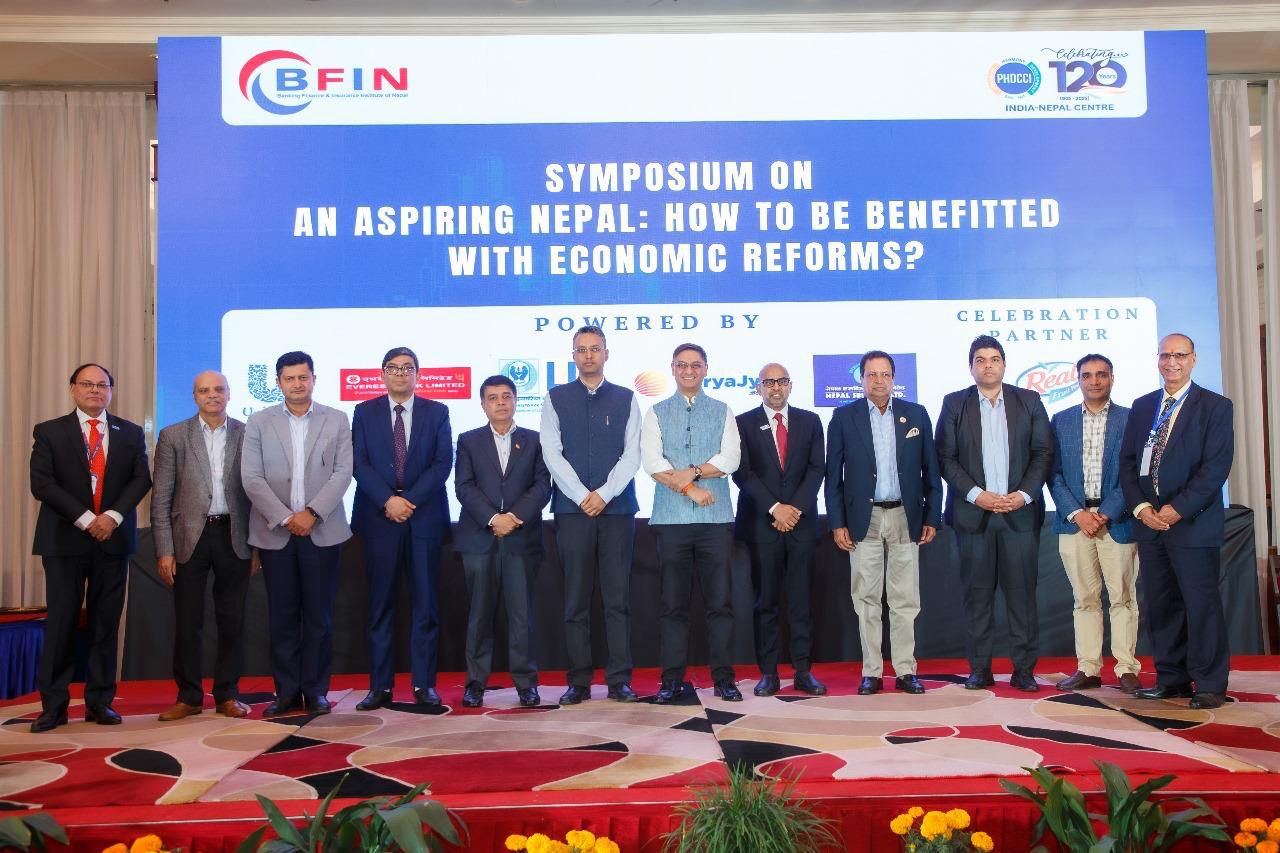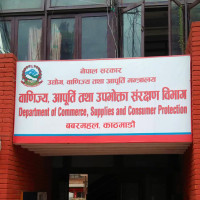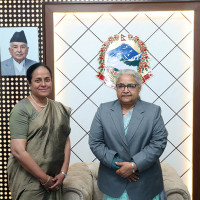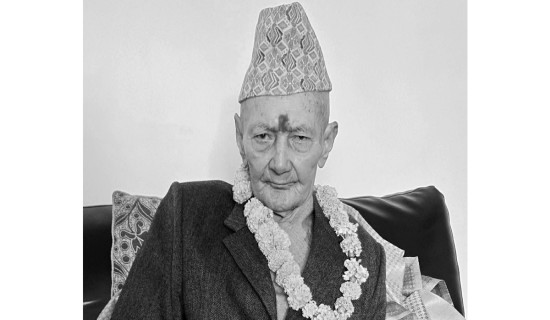- Thursday, 5 February 2026
Process reform has been key for India’s fast growth : Modi govt economic advisor Sanyal
By Ajay Chhetri, Kathmandu, May 10: Process reform has been a key for India’s fast growth.
Speaking in the symposium on “Aspiring Nepal How to be benefitted with economic reform?” with a theme of “How to do reforms: India’s attrition strategy Vs DOGE Blitz’, a member of the Economic Advisory council to the Prime Minister, Government of India, Sanjeev Sanyal said India has been taking attrition warfare approach for reform which is more methodical in contrast to DOGE introduced in United Stated by Elon Musk and similar reform effort getting done in Argentina.
Elaborating his theme Sanyal said “Changing our structure of indirect tax system to introducing good and service tax (GST) is a sort of structural reform. Shifting monetary policy to an inflation targeted is a structural reform. The original 1991 reform which shifted us from socialist based system to a market based system is structural reform”.
He said structural reform is not only kind of reform and not much attention is given to process reform. Bringing the context of the process reform Sanyal mentioned a course of MBA (Masters in Business Administration) which is business process re-engineering which he elaborated while talking on process reform.
He said 80 to 90 percent of problems gets solved by 10 to 20 percent of reforms. He said structural reform could face political backlash however there is lower chance of political backlash while performing process reform. Most of the reforms are painful nuts and bolts reform. Sanyal reiterated that process reform is important part of the policy tool-kit.
A renowned Industrialist and a member of the House of Representatives Binod Chaudhary said that the growth we saw in 1993 we had never seen before. Scheme like UDAN has significantly transformed aviation of India so similar kind of initiative should be taken in Nepal for expand connectivity with Indian cities. He said instead of sending students abroad why not we collaborate with foreign universities. Chaudhary also urged Indian institutions to come up with a road map and Nepal is ready to collaborate.
A member of National Planning Commission of Nepal, Prakash Kumar Shrestha said that Nepal need an another round of economic reform to realize the dream of accomplishing its long term vision of Prosperous Nepal Happy Nepali first round done in 1990s. Shrestha said “ If we can get a success to export 2000 mega watt (MW) of hydroelectricity to India as per recent agreement it will be a turning point for Nepalese to achieve higher growth trajectory”.
Speaking on the symposium Vice President (Head of Government Engagement: India and South Asia ), Visa Anand Jha said as Nepal has a huge demographic dividend here it’s time for Nepal to see some growth and production revolution. He said there is a need a consideration to connect Nepalese diaspora in tourism sector.
Dr. Binod Atreya, Managing Director of BFIN, set a purposeful tone for the program to facilitate speakers to put their respective views on the reform.
Prasanna Shrivastava, Deputy Chief of Mission at the Embassy of India in Nepal reaffirmed India's support for Nepal’s developmental aspirations.
Chandra Prasad Dhakal, President, FNCCI; Guru Prasad Paudel, Executive Director, Nepal Rastra Bank; Upendra Prasad Poudel, President, CBFIN; Ram Kumar Tiwari, MD & CEO, Nepal SBI Bank Ltd put their view in the program.
The panel discussion, moderated by Atul K. Thakur, Secretary, India-Nepal Centre (PHDCCI), explored key themes such as policy innovation, financial sector transformation, and sustainable regional growth.
The Banking, Finance and Insurance Institute of Nepal (BFIN), in collaboration with the India-Nepal Centre of the PHD Chamber of Commerce and Industry (PHDCCI), organized this symposium titled “An Aspiring Nepal: How to Benefit from Economic Reforms?” at Kathmandu on May 9.







-square-thumb.jpg)







